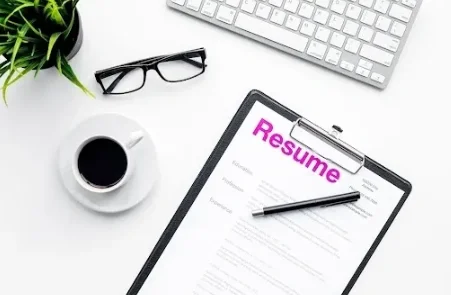Blog
Applying Strategically and Networking
Most people think the first step to getting a new job is updating their resume and cover letter. The truth is before you can get to that, you need to have a goal and plan in mind for the types of jobs you are targeting. Once you have determined your career path objectives, do some research on the position, update your resume, network, and then start applying.

Create a plan and follow it
Try not to get overwhelmed; break it down into steps. Think of it as a roadmap. What milestones do you need to have completed before you start applying?
The first step is researching the position you are targeting. What types of skills, education, and requirements are companies looking for? Do you have those skills? If so, great. If not, are there courses you can take to advance your skills?
Focus on your strengths.
If you are good at problem-solving and relationship-building, narrow your job search to roles that showcase it.
A little trick to help with this is to search jobs that you are interested in and look at the job descriptions and highlight duties you are either good at or enjoy doing. The positions that have the most highlighted tasks are the ones you should focus on. There is no need to apply for jobs you will not be good at or happy in. It is also beneficial when writing your resume and cover letter. Look at those highlighted duties and focus on those.
Keep in mind your job search strategy may shift from time to time. For example, say you have researched, updated your resume, and begun applying for positions. If you start going on interviews and notice that the position is not really what you had in mind, you may need to alter your job search and resume. Think of interviews to practice and get to know the company and position. Ask questions. Determine if this is the direction you see yourself in the future. After you leave the interview, did you get excited about the position and company? Are you eager to start? Or did you leave the interview feeling more confused about the role? My point is that you should be using interviews as a milestone marker for finding the perfect position for you and your future.
Tip: If you are still unsure about the position you want to target, try finding people on LinkedIn in that position and ask them questions. Ask them questions on how someone like you could break into the industry that they are in. Ask for tips and tricks. Ask if there is anyone else they recommend you should chat with? Not only is this a great way to learn and explore it is a great way to network with other professionals.
Network
Professional Network.
Reach out to Human Resource professionals and Recruiters. Yes, do not be shy; reach out. Sending a message is great, or a call. See if they have 20 or 30 minutes to sit down for a cup of coffee. You must not send a generic message. Find something special about the position or company and inquire about it.
A proactive candidate will always get “brownie” points by reaching out. And if you do not get a response, that is OK. Keep moving, keep searching, and keep reaching out. The recruitment world is small; recruiters are friends with other recruiters. A great recruiter will have an extensive network. That means you never know what door will open due to one connection. Or, if you find a Human Resource professional or Recruiter in search of what you have to offer, great, you just made their job easier by reaching out.
It is a unique and effective way to expand your network.
Personal Network
Next, reach out to your close network of people. This one is easy. Just let your friends and family know you are on the job search, or reach out to your professional network (old coworkers, supervisors, etc.). You know that old saying, “it’s not what you know, it’s who you know,” well it still stands true. Networking is critical in finding a job.
Networking Events
Attending networking events is a great way to engage with people on a personal level. The more real connections you make, the more likely one of those connections will turn into an opportunity.
There are industry-specific events that you can attend or general networking events. For example, Eventbrite is an excellent tool for finding networking meet-up groups. Or another great option is joining Facebook groups. There are a ton of networking events; you must do some research to find them. Also, keep in mind virtual events are significant too.
Career Fairs
Career fairs are a great way to present yourself as a person, not just as a piece of paper. It is a great way to get your feet in the door at a company. But be prepared to bring your A-game. Recruiters and HR will meet with hundreds of people at career fairs, so you need to stand out. You do not want to be another face in the crowd. It would be best if you made a lasting impression on them. Think of like this like speed dating but with companies and candidates.

And do not forget to bring copies of your resume. It is critical. Say you leave a lasting impression, but the company does not have a copy of your resume; how will they contact you for the next steps in the process.
Bring a notepad. Takes notes of the companies and positions that sparked your interest. Then follow up with that company. Attending career fairs and meeting HR and recruiters gives you an excellent icebreaker for sending an email. For example, you could say something like this, “Hi (name of HR/Recruiter), We met the other day at the career fair. I am sure you met with many other candidates, so I would reach out and personally re-introduce myself. I am interested in (the title of the position). What excites me about this opportunity is (list a reason here).
I hope this helped! Contact NimoHR for more information.
Latest Posts
- How to Update Your Resume for 2025: Expert Tips from NimoHR
- Expert Resume Formatting Tips to Beat Applicant Tracking Systems (ATS)
- Industry-Specific CV Writing: Why One-Size-Fits-All Doesn’t Work
- How a Professionally Written CV Can Speed Up Your Job Search
- Why LinkedIn Profile Optimization is the Secret to Standing Out in a Competitive Job Market
- How a LinkedIn Profile Writer Can Transform Your Online Presence
- Enhancing Your Job Application: The Value of a Cover Letter Review Service
- Common Mistakes in Cover Letters and How Professional Services Can Help
- Overcoming Common Interview Challenges: Gaps in Employment and Career Transitions
- The Role of Non-Verbal Communication in Job Interviews
- Mastering the Salary Conversation: Essential Strategies for Effective Negotiation
- Choosing Between Quitting and Getting Fired: What’s Best for Your Career?
- Mastering LinkedIn Skills: How to Choose the Best Skills for Career Growth
- 5 Proven Strategies to Send LinkedIn Invitations That Get Accepted
- Crafting the Perfect Cover Letter for an Internal Position: A Step-by-Step Guide
- Did You Know? Your Resume Reference Page Could Make or Break Your Job Application
- Crafting a Layoff Notice: Effective Communication During Work Shortages
- Mastering Behavioral Interview Questions: Tips and Examples
- In-Demand Skills for 2024: What to Include on Your Resume
- Navigating Career Transitions: Reshaping Your Resume for a New Path
- How to Optimize Your LinkedIn Profile
- Cracking the Job Interview: Insights from NimoHR’s Interview Preparation Sessions
- Using LinkedIn Articles to Showcase Your Expertise
- Creating a Standout Resume for Phoenix Employers: Tips on crafting a resume tailored to the preferences of local Phoenix employers
- Resume Trends for 2024: What You Need to Know
- From First Impression to Final Question: Excelling at the Four Key Interview Evaluation Points
- Behind the Screens: Understanding the Role of ATS in the Hiring Process
- How to Create the Perfect Executive LinkedIn Profile?
- How to Write a Cover Letter That Gets You the Job You Want
- How To Build A Resume
- Get Professionally Written Resumes And LinkedIn Profiles
- Top 5 Reasons To Avail Of LinkedIn Resume Writing Services
- Helpful Tips For Writing A Perfect Cover Letter
- How to Ace Your Next Interview
- 15 Things To Leave Off Your Resume
- Effective Interview Strategies
- The Best Job-Board Sites
- 4 Simple Signs That You Should Quit Your Job
- The most common interview questions & the best way to answer them
- How to beat those pesky Applicant Tracking Systems
- Jump-start your career during the COVID-19 crisis
- Questions to ask in an interview
- Career consulting ROI. Why you should purchase a professional resume writing services
- The Importance of a Company Culture and HR’s Role
- Why companies should offer outplacement services and career coaching
- Interview Tips: Back to the Basics
Categories
Related Posts

How to Update Your Resume for 2025: Expert Tips from NimoHR
Updating your resume for 2025 requires more than just listing your latest job. With applicant tracking systems (ATS) becoming more sophisticated, you need to format and write your resume strategically to stand out. At NimoHR, we specialize in helping professionals craft impactful resumes that pass ATS filters and impress hiring managers. If you’re ready to… Continue reading How to Update Your Resume for 2025: Expert Tips from NimoHR
Read More
Expert Resume Formatting Tips to Beat Applicant Tracking Systems (ATS)
In today’s competitive job market, a well-crafted resume is essential—but even more important is ensuring it passes the Applicant Tracking System (ATS). ATS software is designed to filter out resumes that don’t meet specific criteria, including formatting, keywords, and structure. Many highly qualified candidates miss out on interviews because their resumes fail to pass the… Continue reading Expert Resume Formatting Tips to Beat Applicant Tracking Systems (ATS)
Read More
Industry-Specific CV Writing: Why One-Size-Fits-All Doesn’t Work
In today’s highly competitive job market, standing out is more important than ever. Many job seekers make the mistake of using a generic CV for all applications, believing that a broad approach will maximize their chances. However, recruiters and hiring managers are looking for candidates who demonstrate a clear understanding of the industry, its requirements,… Continue reading Industry-Specific CV Writing: Why One-Size-Fits-All Doesn’t Work
Read More